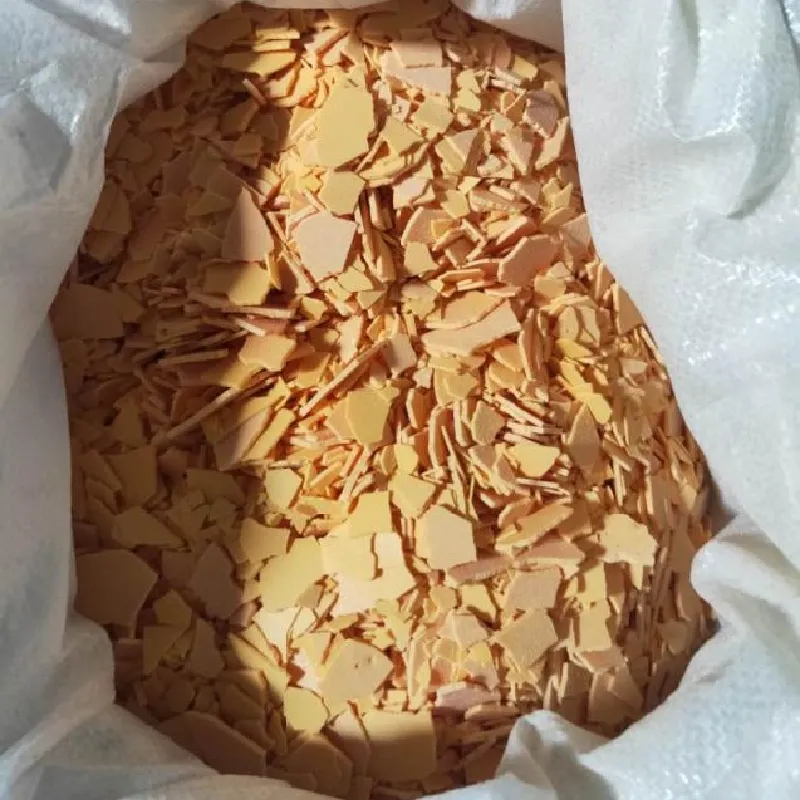
Innovative Solutions in the Rubber Chemicals Industry for Enhanced Performance and Sustainability
The Evolution and Significance of Rubber Chemicals
Rubber, a versatile material utilized in numerous applications worldwide, owes much of its performance and durability to the thoughtful incorporation of rubber chemicals. These substances play a vital role in the manufacturing and enhancement of rubber products, addressing a myriad of properties such as flexibility, strength, and resistance to heat, oxidation, and aging. This article delves into the various types of rubber chemicals, their functions, and their significance in modern industries.
Types of Rubber Chemicals
Rubber chemicals can be broadly classified into several categories, each serving a unique purpose
1. Accelerators These chemicals are crucial for the vulcanization process, which involves cross-linking rubber polymers to create a more durable material. Accelerators significantly reduce the time and temperature required for vulcanization, thus enhancing productivity in rubber processing. Common accelerators include sulfenamides, thiuram, and guanidine compounds.
2. Antioxidants Exposure to oxygen and heat can cause oxidation in rubber, leading to degradation over time. Antioxidants are additives that help prevent this process, thereby prolonging the lifespan of rubber products. Chemicals such as phenolic and amine antioxidants are widely used to mitigate oxidative damage.
3. Fillers Fillers are added to rubber compounds to improve mechanical properties while reducing costs. Carbon black is the most commonly used filler, enhancing strength and wear resistance. Other fillers, such as silica, can also be utilized for their reinforcing properties.
4. Plasticizers These substances are incorporated to improve the flexibility and workability of rubber. By reducing the viscosity of the rubber compound, plasticizers facilitate easier processing and shaping of the material.
5. Retarders In some situations, manufacturers wish to slow down the curing process to allow for more extended processing times. Retarders help control the rate of vulcanization, ensuring that the rubber can be shaped and manipulated adequately before setting.
rubber chemicals

The Importance of Rubber Chemicals
The significance of rubber chemicals extends across various sectors, including automotive, construction, and consumer goods. In the automotive industry, rubber chemicals enhance the performance and safety of tires, seals, and hoses. For instance, the incorporation of specific accelerators can improve the heat resistance of tires, allowing them to perform better under high-speed conditions.
In construction, rubber chemicals contribute to the production of durable roofing materials, gaskets, and flooring. The use of antioxidants in these applications ensures longevity, reducing the need for frequent replacements and maintenance, which is essential in maintaining safety and efficiency in buildings.
Moreover, the consumer goods sector relies heavily on rubber chemicals for products such as footwear, sporting goods, and kitchenware. The flexibility and durability imparted by these chemicals enable manufacturers to create goods that withstand daily wear and tear while providing comfort and usability.
Sustainability and Future Directions
As the global focus shifts towards sustainability, the rubber chemicals industry is also adapting. The demand for eco-friendly additives and processes is on the rise, prompting research into greener alternatives. Bio-based rubber chemicals derived from renewable resources are emerging as viable options, reducing dependence on fossil fuels and lowering carbon footprints.
In addition, innovations in recycling rubber and developing circular economy practices are gaining traction. By effectively recycling rubber products and utilizing reclaimed materials, manufacturers can reduce waste and conserve natural resources.
Conclusion
Rubber chemicals are pivotal in enhancing the performance and longevity of rubber products across various industries. From improving heat and oxidation resistance to enabling efficient manufacturing processes, these chemicals are integral to the rubber lifecycle. As the industry moves towards more sustainable practices, ongoing research and innovation will continue to shape the future of rubber chemicals, ensuring that they meet modern demands while supporting environmental goals. Understanding and leveraging the potential of rubber chemicals will be essential for manufacturers aiming to thrive in a competitive and eco-conscious market. The development and use of rubber chemicals are not just a technical necessity—they represent a crucial aspect of global industry progress.
-
Pure Sodium Dichloroisocyanurate Dihydrate | Powerful DisinfectantNewsAug.29,2025
-
Industrial Chemicals: Quality & Purity for Every IndustryNewsAug.28,2025
-
Nitrile Rubber Honoring Strict Production StandardsNewsAug.22,2025
-
Aspartame Ingredients Honoring Food Safety ValuesNewsAug.22,2025
-
Fertilizer for Balanced Plant NutritionNewsAug.22,2025
-
Cyanide Gold Processing with High Purity AdditivesNewsAug.22,2025
-
Formic Acid in Textile Dyeing ApplicationsNewsAug.22,2025
Hebei Tenger Chemical Technology Co., Ltd. focuses on the chemical industry and is committed to the export service of chemical raw materials.
-

view more DiethanolisopropanolamineIn the ever-growing field of chemical solutions, diethanolisopropanolamine (DEIPA) stands out as a versatile and important compound. Due to its unique chemical structure and properties, DEIPA is of interest to various industries including construction, personal care, and agriculture. -

view more TriisopropanolamineTriisopropanolamine (TIPA) alkanol amine substance, is a kind of alcohol amine compound with amino and alcohol hydroxyl, and because of its molecules contains both amino and hydroxyl. -

view more Tetramethyl Thiuram DisulfideTetramethyl thiuram disulfide, also known as TMTD, is a white to light-yellow powder with a distinct sulfur-like odor. It is soluble in organic solvents such as benzene, acetone, and ethyl acetate, making it highly versatile for use in different formulations. TMTD is known for its excellent vulcanization acceleration properties, which makes it a key ingredient in the production of rubber products. Additionally, it acts as an effective fungicide and bactericide, making it valuable in agricultural applications. Its high purity and stability ensure consistent performance, making it a preferred choice for manufacturers across various industries.





